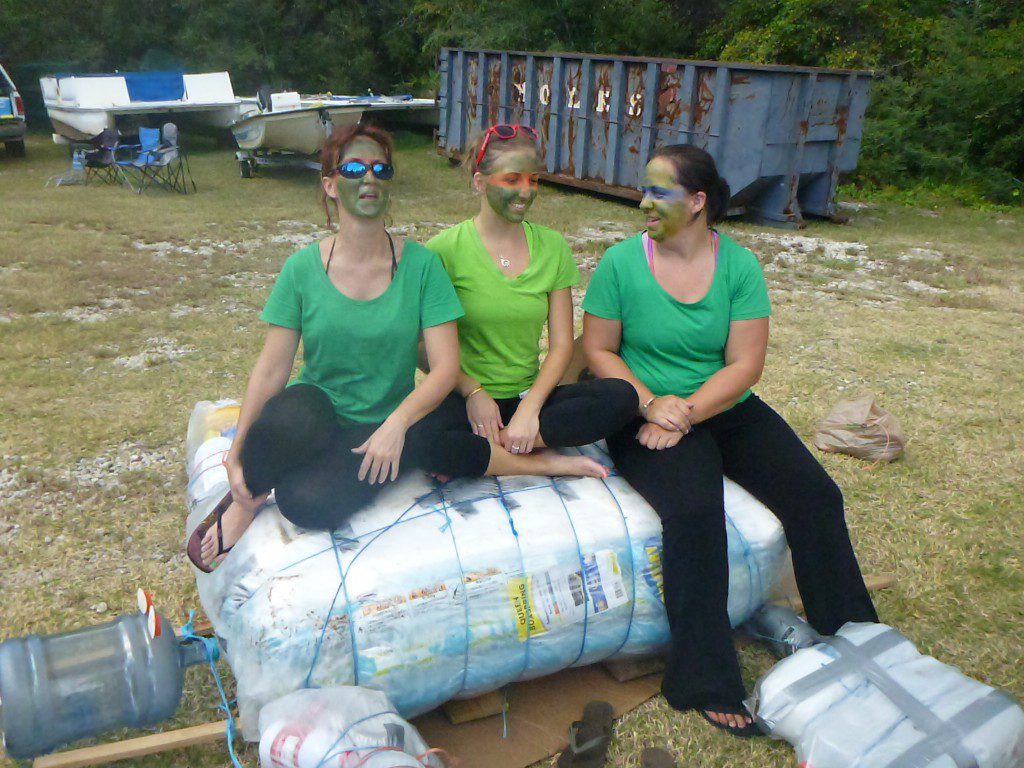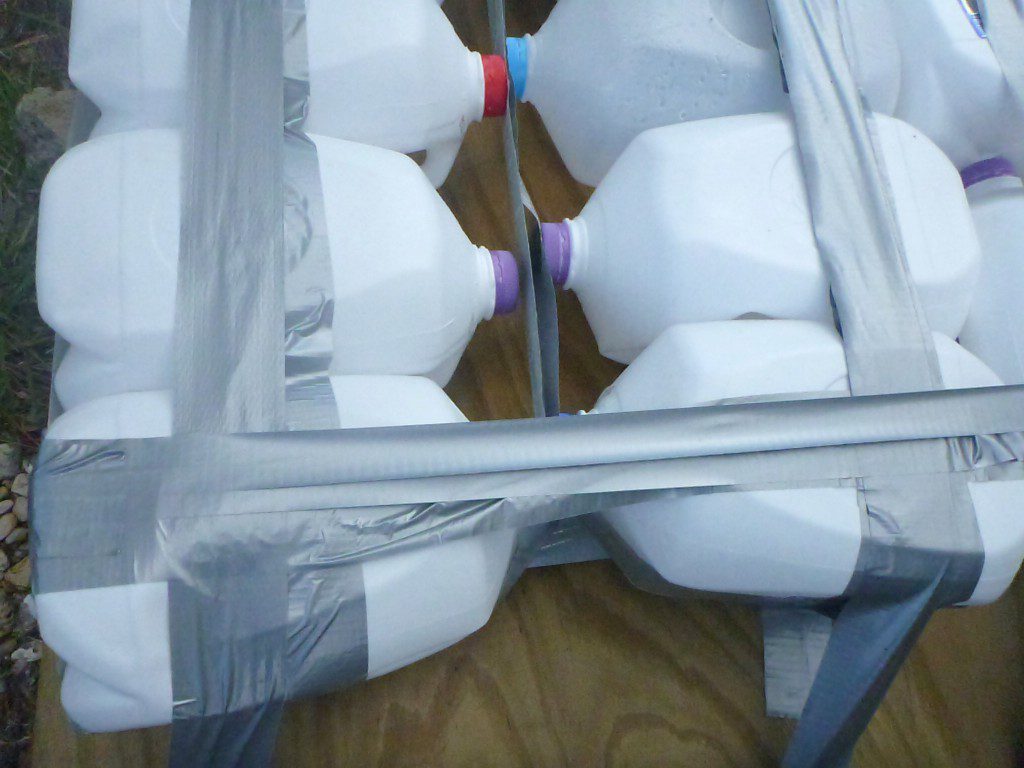Rob Diaz de Villegas WFSU-TV
Today we take a little break from the Apalachicola River and Bay crises and from our ecological explorations into the intertidal for something fun: The FSU Coastal & Marine Lab’s 1st Annual Regatta. People from the community, many wearing outlandish costumes, brought in seven different homemade boats made from recycled materials. I was mentally prepared to film sinking ships (and half of them tested their boats ahead of time) and rescues from the two rescue boats stationed at either end of the course. It was as entertaining a shoot as I’ve been on recently, and it could have been a longer segment if I’d included the explanations of each boat name, which were typically pretty clever.
In the interview with Dr. Felicia Coleman, she mentions that she wanted to bring attention to recycling. It’s not as hot button an issue as climate change, the BP spill, or water management in the ACF basin, but a few stats gathered by In the Grass, On the Reef Associate Producer Rebecca Wilkerson illustrate that if we as a society recycled more of our plastic, we would be doing our oceans a favor.

The “Splinter,” a boat made from a kiddie pool and various plastic recyclables, wrapped in plastic and shaped like a turtle. Who can identify which turtle each girl is supposed to be from their painted on masks?
Over 300 million tons of plastic are produced every year. Sources gathered by Rebecca indicate that only 5-10% of it is recycled. The rest ends up in landfills and in the ocean. There is no definitive number on how much plastic is floating in the ocean. The State of the Planet blog from Earth Institute at Columbia University puts the number in the hundreds of million of tons, where a more ambitious attempt at calculating it from 5GYRES puts it at 315 billion tons. This page on the Marine Research Institute’s Algalita web site discusses how slowly plastic breaks down, possibly staying in ecosystems for centuries. Plastic floating near the surface confuses birds and gets eaten by them. Properly disposing of plastic would is the best way to prevent this burden on our oceans.
Well, there I went getting serious when I said we were taking a break from the serious. I hope you enjoy the video. In the next few weeks we’ll delve back into the intertidal, looking more closely at some of the ecosystem services provided by salt marshes and oyster reefs. And we’ll be posting two video segments from RiverTrek 2012, so stay tuned!


2 comments
Where’s the footage from the crew of the Led Zeppelin (John Squall Jones)!? From what I hear they were the most enthusiastic, energetic, and creative crew in the race! I would have loved to see the faces behind the boat of palates and barrels!
Yours,
Devoted Squaller
Chris Koenig acted as the spokesperson for the Lead Zeppelin, so he’s the only one we talked to. Like I said in my post, had I more than 6 minutes I could have included a lot more of the entertaining antics/ interviews/ race footage. It was tough to keep it out!
Comments are closed.